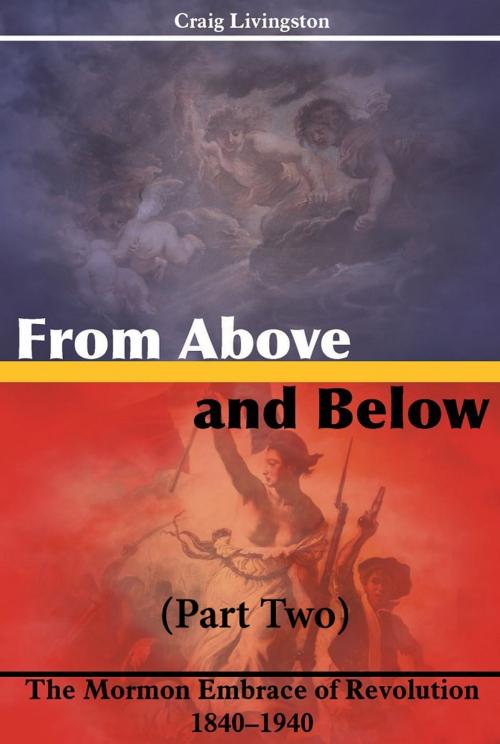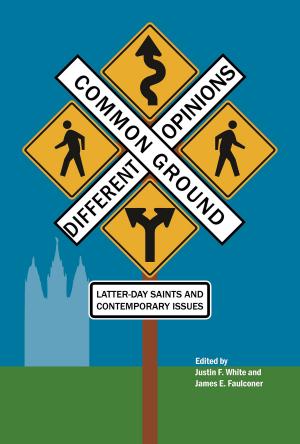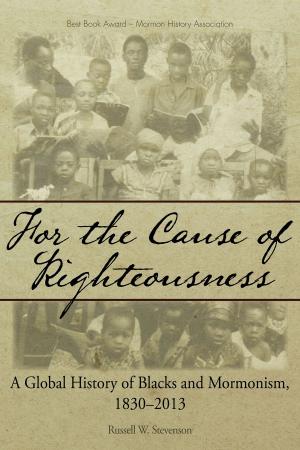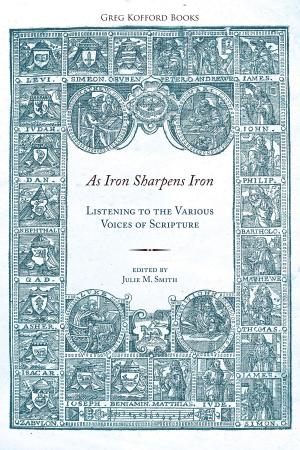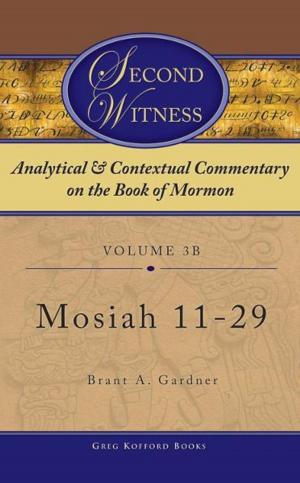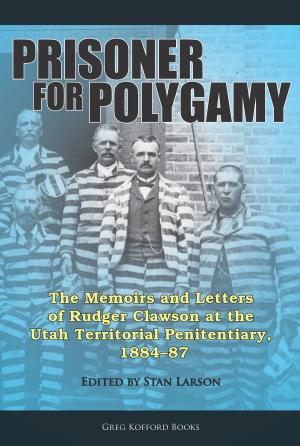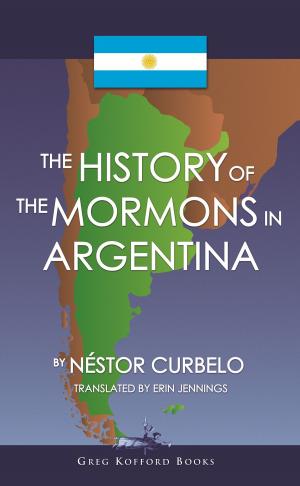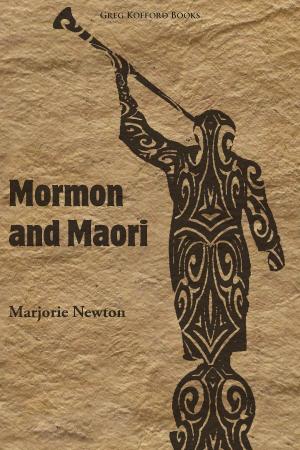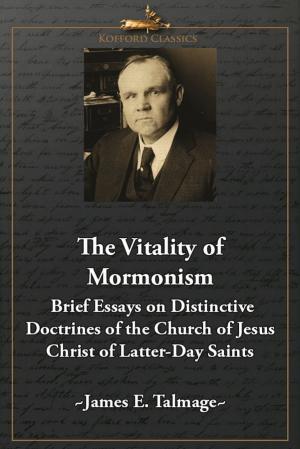From Above and Below: The Mormon Embrace of Revolution, 1840–1940
(Part Two)
Nonfiction, Religion & Spirituality, Christianity, Denominations, Mormonism, History, Revolutionary| Author: | Craig Livingston | ISBN: | 9781589586291 |
| Publisher: | Greg Kofford Books | Publication: | June 18, 2013 |
| Imprint: | Language: | English |
| Author: | Craig Livingston |
| ISBN: | 9781589586291 |
| Publisher: | Greg Kofford Books |
| Publication: | June 18, 2013 |
| Imprint: | |
| Language: | English |
For the first century of their church’s existence, Mormon observers of international events studied and cheered global revolutions as a religious exercise. As believers in divine-human co-agency, many prominent Mormons saw global revolutions as providential precursors to the imminent establishment of the terrestrial kingdom of God. French Revolutionary symbolism, socialist critiques of industrialism, American Indian nationalism, and Wilsonian internationalism all became the raw materials of Mormon millennial theologies which were sometimes barely distinguishable from secular utopianism. Many Mormon thinkers accepted secular revolutionary arguments that the old world order needed to be destroyed, not merely reformed, to clear the way for the new.
In From Above and Below, author Craig Livingston tells the story of Mormon commentary on global revolutions from the European revolutions of 1848 to the collapse of Mormon faith in progress in the 1930s when revolutionary communist and fascist regimes exposed themselves as violent and repressive. As the Church bureaucratized and assimilated to mainstream American and capitalist values, Mormons became champions of the conservative view of political and social development for which they are known today. The first Mormon converts in Mexico and France, both political radicals, would scarcely recognize the arch-conservative twenty-first century Church.
Praise for From Above and Below:
"In this engaging study, Craig Livingston examines Mormon responses to political revolutions across the globe from the 1840s to the 1930s. Latter-day Saints saw utopian possibilities in revolutions from the European tumults of 1848 to the Mexican Revolution. Highlighting the often radical anti-capitalist and anti-imperialist rhetoric of Mormon leaders, Livingston demonstrates how Latter-day Saints interpreted revolutions through their unique theology and millennialism." --Matthew J. Grow, author of "Liberty to the Downtrodden": Thomas L. Kane, Romantic Reformer
"Craig Livingston's landmark book demonstrates how 21st-century Mormonism's arch-conservatism was preceded by its pro-revolutionary worldview that was dominant from the 1830s to the 1930s. Shown by current opinion-polling to be the most politically conservative religious group in the United States, contemporary Mormons are unaware that leaders of the LDS Church once praised radical liberalism and violent revolutionaries. By this pre-1936 Mormon view, 'The people would reduce privilege and exploitation in the crucible of revolution, then reforge society in a spiritual union of peace' before the Coming of Christ and His Millennium. With profound research in Mormon sources and in academic studies about various social revolutions and political upheavals, Livingston provides a nuanced examination of this little-known dimension of LDS thought which tenuously balanced pro-revolutionary enthusiasms with anti-mob sentiments." --D. Michael Quinn, author of Elder Statesman: A Biography of J. Reuben Clark
For the first century of their church’s existence, Mormon observers of international events studied and cheered global revolutions as a religious exercise. As believers in divine-human co-agency, many prominent Mormons saw global revolutions as providential precursors to the imminent establishment of the terrestrial kingdom of God. French Revolutionary symbolism, socialist critiques of industrialism, American Indian nationalism, and Wilsonian internationalism all became the raw materials of Mormon millennial theologies which were sometimes barely distinguishable from secular utopianism. Many Mormon thinkers accepted secular revolutionary arguments that the old world order needed to be destroyed, not merely reformed, to clear the way for the new.
In From Above and Below, author Craig Livingston tells the story of Mormon commentary on global revolutions from the European revolutions of 1848 to the collapse of Mormon faith in progress in the 1930s when revolutionary communist and fascist regimes exposed themselves as violent and repressive. As the Church bureaucratized and assimilated to mainstream American and capitalist values, Mormons became champions of the conservative view of political and social development for which they are known today. The first Mormon converts in Mexico and France, both political radicals, would scarcely recognize the arch-conservative twenty-first century Church.
Praise for From Above and Below:
"In this engaging study, Craig Livingston examines Mormon responses to political revolutions across the globe from the 1840s to the 1930s. Latter-day Saints saw utopian possibilities in revolutions from the European tumults of 1848 to the Mexican Revolution. Highlighting the often radical anti-capitalist and anti-imperialist rhetoric of Mormon leaders, Livingston demonstrates how Latter-day Saints interpreted revolutions through their unique theology and millennialism." --Matthew J. Grow, author of "Liberty to the Downtrodden": Thomas L. Kane, Romantic Reformer
"Craig Livingston's landmark book demonstrates how 21st-century Mormonism's arch-conservatism was preceded by its pro-revolutionary worldview that was dominant from the 1830s to the 1930s. Shown by current opinion-polling to be the most politically conservative religious group in the United States, contemporary Mormons are unaware that leaders of the LDS Church once praised radical liberalism and violent revolutionaries. By this pre-1936 Mormon view, 'The people would reduce privilege and exploitation in the crucible of revolution, then reforge society in a spiritual union of peace' before the Coming of Christ and His Millennium. With profound research in Mormon sources and in academic studies about various social revolutions and political upheavals, Livingston provides a nuanced examination of this little-known dimension of LDS thought which tenuously balanced pro-revolutionary enthusiasms with anti-mob sentiments." --D. Michael Quinn, author of Elder Statesman: A Biography of J. Reuben Clark
